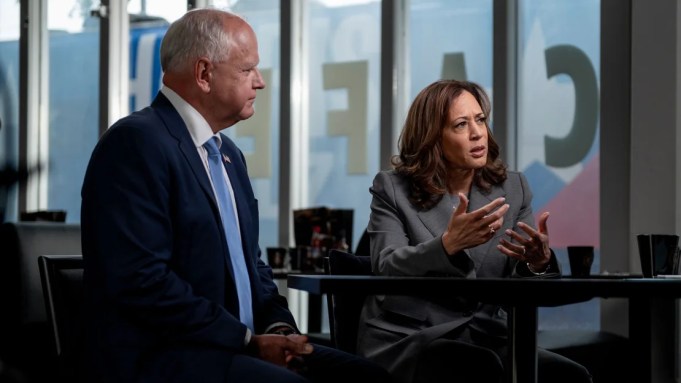Despite a lackluster showing from Governor Tim Walz (D-MN) in his sole debate, Vice President Kamala Harris might soon rue her decision for not selecting Governor Josh Shapiro (D-PA) as her ally. Some believe that the Harris campaign, of course, vociferously applauds Walz for his performance against Senator J.D. Vance (R-OH). But with political experts admiring Vance for his smooth discourse, one must wonder if the inclusion of Shapiro in Harris’s team could have improved her chances for the November elections.
Interestingly, Harris must be indebted to the fact that vice presidential debates are not given as much weightage as the presidential ones. According to a commentator from Cook Political Report, if Harris had selected a more adept player, like Shapiro, he might have capitalized on opportunities that Walz missed. This factors into her strategy of connecting with middle-of-the-road Democrats and independent voters who might have previously shown support for President Joe Biden in states like Pennsylvania, a pivotal state with 19 electoral votes at stake this year.
Presently, Trump enjoys a nominal lead of 3 percent in the Keystone state. During the debate, Walz exhaustively flaunted his political accomplishments in Minnesota, a move designed to win over liberal Democrats. Ironically, this approach left little space to provide a strong argument against Trump or to address national matters. The consequential outcome, prompted by this mistaken strategy, could be Harris’s defeat if Pennsylvania becomes the game-changing state.
In that situation, the likelihood of regret over choosing Walz could skyrocket. Shapiro’s popularity might have tipped the scale in Harris’s favor, if given the opportunity to compete in a hypothetical open primary. The remarkable difference of around 37,000 votes, in favor of Biden, between the 2016 and 2020 Pennsylvania elections could have had a different impact on Harris’s quest.
Shapiro’s exclusion seems to loom large over the Harris-Walz team as Shapiro has shown unequivocal support for both Harris and Walz, enhancing his public image. Vance effortlessly swayed his audience from the get-go, sharing anecdotes from his personal life which contrasted glaringly with Walz’s uncertain demeanor, apparent only in the concluding moments of the debate.
The lack of direct engagement with the media by Walz also stack the cards against Harris’s campaign, while Vance is known to routinely respond to press queries and participate in interviews. Post-debate, the Harris campaign has emphasized on Walz’s efforts to establish a wider connection with voters and journalists through a variety of means like rallies, small-scale events and fundraisers.
Walz’s first rally after the debate was held in York, Pennsylvania as part of his bus tour across the state. However, opinions about his selection over Shapiro are divided. Local business owner, Michael, 50, commented that while Shapiro would have been a better choice, it’s hard to dislike Walz outright. On the other hand, his partner Lia, 49, opined that Harris needs Walz to communicate with a demographic that would generally not consider her.
Sheila Zent, a 69-year-old retiree from Hanover, also expressed her unfamiliarity with Walz prior to him being selected by Harris. However, she admitted that many from Pennsylvania’s rural regions find him relatable. For Zent and her friend Stacy Ratliff, a 63-year-old retiree from Spring Grove, it was apparent that Shapiro’s popularity in Pennsylvania is inextricably tied to his stance on preserving abortion rights in the state.
The Harris campaign’s optimism notwithstanding, it’s clear that the choice of Walz has provoked both skepticism and praise. While Shapiro could have potentially offered a more strategic partnership, his absence from the ballot doesn’t necessarily translate into a decisive defeat for Harris.
Despite their efforts to gear up for a high-stakes political race, the Harris-Walz alliance is yet to demonstrate breakthrough momentum. Overall, the scenario affirms the importance of a coordinated ticket and the complexity of selecting the right running mate. As the unfolding electoral dynamics continue to bewilder many, only November will conclusively reveal the merits or drawbacks of Harris’s vice presidential selection.


